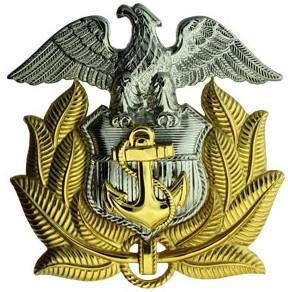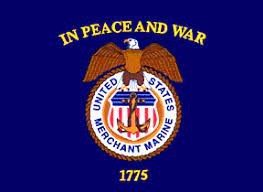|
Subject
|
Machinist
|
Refrigerating
Engineer
|
Fireman/
Watertender
|
Oiler
|
Electrician
|
Junior Engineer
|
Deck Engineer
|
|
1. Application, maintenance, and
use of hand tools and measuring instruments. |
X
|
X
|
X
|
X
|
X
|
X
|
X
|
|
2. Uses of babbitt,
copper, brass, steel, and other metals.
|
X
|
X
|
X
|
X
|
X
|
X
|
X
|
|
3. Methods of
measuring pipe, pipe fittings, sheet metal, machine bolts and nuts,
packing, etc.
|
X
|
X
|
X
|
X
|
X
|
X
|
X
|
|
4. Operation
and maintenance of mechanical remote control equipment.
|
X
|
|
X
|
X
|
X
|
X
|
X
|
|
5. Precautions
to be taken for the prevention of fire and the proper use of firefighting
equipment.
|
X
|
X
|
X
|
X
|
X
|
X
|
X
|
|
6. Principles
of mechanical refrigeration; and functions, operation, and maintenance
of various machines and parts of the systems.
|
|
X
|
X
|
X
|
|
|
|
|
7. Knowledge
of piping systems as used in ammonia, freon, and CO2, including
testing for leaks, operation of bypasses, and making up of
joints.
|
|
X
|
|
|
X
|
|
|
|
8. Safety precautions
to be observed in the operation of various refrigerating systems,
including storage of refrigerants, and the use of gas masks and
firefighting equipment.
|
X
|
X
|
X
|
X
|
X
|
X
|
X
|
|
9. Combustion
of fuels, proper temperature, pressures, and atomization
|
|
X
|
X
|
|
|
X
|
|
|
10. Operation
of the fuel oil system on oil burning boilers, including the transfer
and storage of fuel oil
|
|
X
|
X
|
|
|
X
|
X
|
|
11. Hazards
involved and the precautions taken against accumulation of oil in
furnaces, bilges, floorplates, and tank tops; flarebacks, leaks
in fuel oil heaters, clogged strainers and burner tips.
|
X
|
X
|
X
|
X
|
X
|
X
|
|
|
12. Precautions
necessary when filling empty boilers, starting up the fuel oil burning
system, and raising steam from a cold boiler.
|
|
|
X
|
X
|
|
X
|
|
|
13. The function,
operation, and maintenance of the various engineroom auxiliaries.
|
X
|
X
|
X
|
X
|
X
|
X
|
|
|
14. Proper operation
of the various types of lubricating systems.
|
X
|
X
|
X
|
X
|
X
|
X
|
X
|
|
15. Safety precautions
to be observed in connection with the operation of engineroom auxiliaries,
electrical machinery, and switchboard equipment.
|
X
|
X
|
X
|
X
|
X
|
X
|
X
|
|
16. The function,
operation, and maintenance of the bilge, ballast, fire, freshwater,
sanitary, and lubricating systems.
|
X
|
X
|
X
|
X
|
|
X
|
X
|
|
17. Proper care
of spare machine parts and idle equipment.
|
X
|
X
|
X
|
X
|
X
|
X
|
X
|
|
18. The procedure
in preparing a turbine, reciprocating, or Diesel engine for standby;
also the procedure in securing.
|
|
|
X
|
X
|
|
X
|
|
|
19. Operation
and maintenance of the equipment necessary for the supply of water
to boilers, the dangers of high and low water and remedial action.
|
|
|
X
|
X
|
|
X
|
|
|
20. Operation,
location, and maintenance of the various boiler fittings and accessories.
|
X
|
|
X
|
X
|
|
X
|
|
|
21. The practical
application and solution of basic electrical calculations (Ohm's
law, power formula, etc.)
|
|
|
|
|
X
|
X
|
X
|
|
22. Electrical
wiring circuits of the various two-wire and three-wire D.C. systems
and the various single-phase and polyphase A.C. systems.
|
|
|
|
|
X
|
X
|
X
|
|
23. Application
and characteristics of parallel and series circuits.
|
|
|
|
|
X
|
X
|
X
|
|
24. Application
and maintenance of electrical meters and instruments.
|
|
|
|
|
X
|
X
|
X
|
|
25. The maintenance
and installation of lighting and power wiring involving testing
for, locating and correcting grounds, short circuits and open circuits,
and making splices.
|
|
|
|
|
X
|
X
|
X
|
|
26. The operation
and maintenance of the various types of generators and motors, both
A.C. and D.C
|
|
|
|
|
X
|
X
|
X
|
|
27. Operation,
installation, and maintenance of the various types of electrical
controls and safety devices.
|
|
|
|
|
X
|
X
|
X
|
|
28. Testing
and maintenance of special electrical equipment, such as telegraphs,
telephones, alarm systems, fire-detecting systems, and rudder angle
indicators.
|
|
|
|
|
X
|
X
|
X
|
|
29. Rules and
Regulations and requirements for installation, repair, and maintenance
of electrical wiring and equipment installed aboard ships.
|
|
|
|
|
X
|
X
|
X
|
|
29a. Pollution
laws and regulations, procedures for discharge containment and cleanup,
and methods for disposal of sludge and waste from cargo and fueling
operations.
|
X
|
X
|
X
|
X
|
X
|
X
|
|
|
30. Such further
examination of a nonmathematical character as the Officer in Charge,
Marine Inspection, may consider necessary to establish the applicant's
proficiency.
|
X
|
X
|
X
|
X
|
X
|
X
|
X
|


